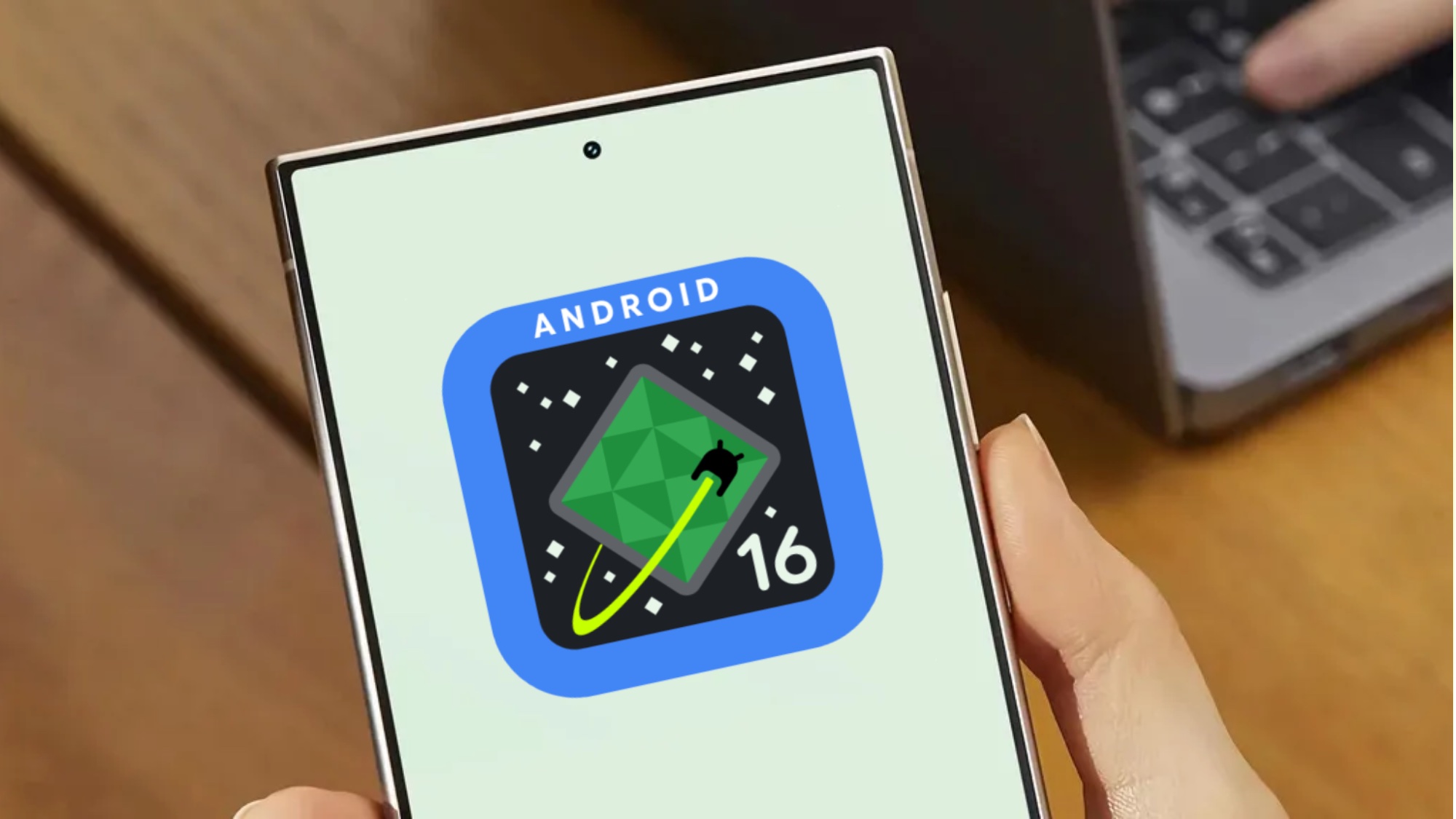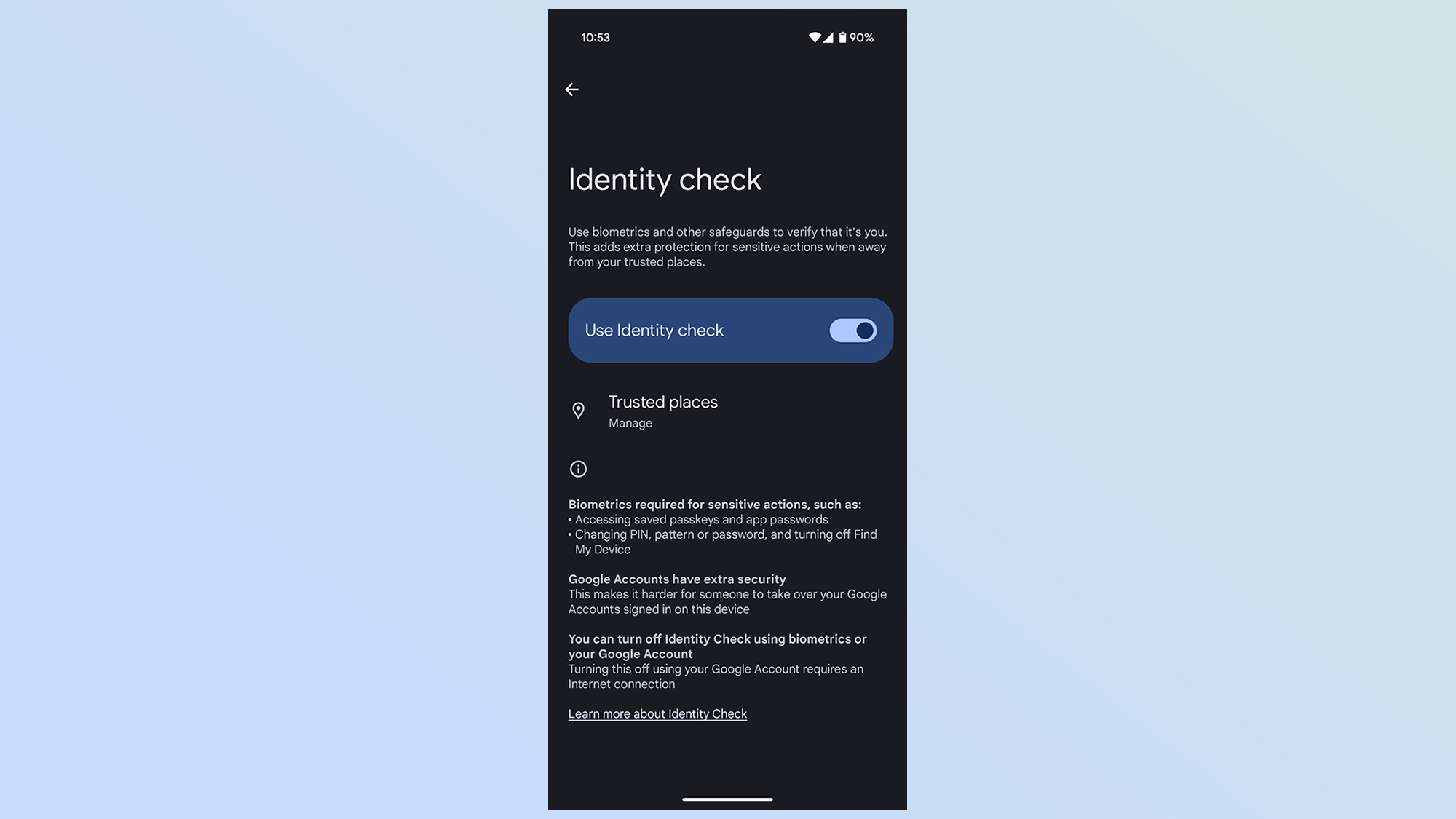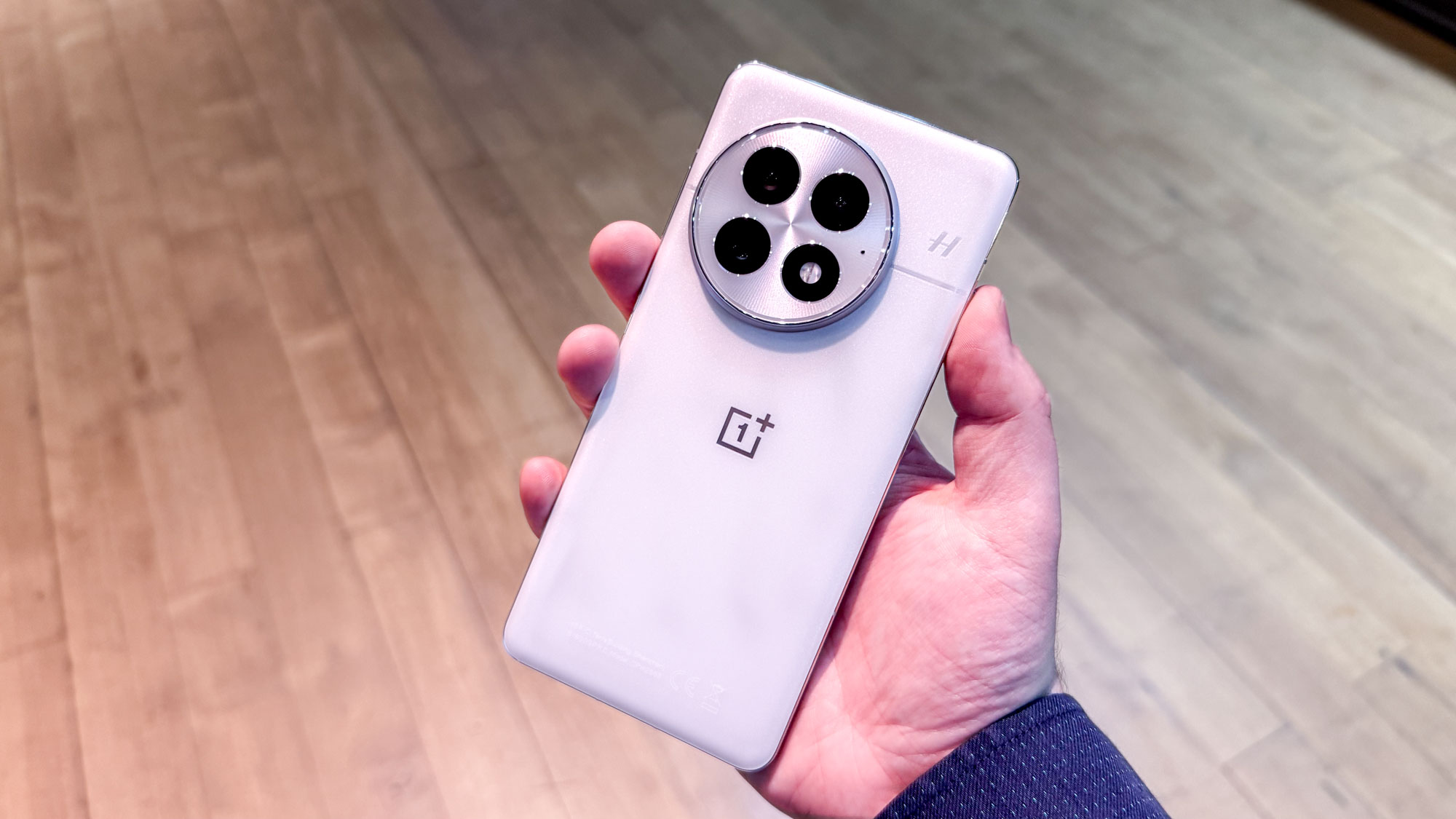I’m thrilled to hear Android 16 will bring a major security upgrade to even more phones
Identity Check will come to even more phones

One of my favorite things about Android 15 is the sheer number of security features Google added to the software. Not just things like Private Space, which helps secure sensitive files and apps, but also the smaller things that help keep your phone and data safe from thieves.
I can’t tell you the number of times where my phone has locked itself up, because something random triggered Auto Theft Detection.
Android 16 is about to push that even further (via Android Authority), by bringing the Identity Check feature to even more phones — rather than keeping it exclusive to Pixel and some Samsung Galaxies. Considering how much data we all store on our phones, I’m pretty happy about that news. Even if I don’t understand why it didn’t happen sooner.
Why Identity Check matters

Identity Check first landed on Pixel phones in December, and was later added to the seemingly-perpetually-delayed One UI 7 update for Samsung phones. Operating in a similar way to Stolen Device Protection on iPhones, the idea behind Identity Check is to offer an extra layer of protection to your phone — and stop thieves from interfering with key security features.
Phones will have specific locations that are “trusted places”, such as your home or workplace, where things will operate as they always have, But away from these spots, certain features will ask you to verify your identity before giving you access.
Biometric security will be added to sensitive actions like changing your phone’s passcode or turning off the Find My Device features. These same checks will also be implemented when trying to access saved passkeys and app passwords, denying access until you can scan your face or fingerprints.
Google accounts will have extra layers of security too, making it harder for any thieves that did get into your phone to remotely take over your account.
Sign up to get the BEST of Tom's Guide direct to your inbox.
Get instant access to breaking news, the hottest reviews, great deals and helpful tips.
If a thief can’t turn off Find My Device, they can’t stop you from wiping everything remotely.
You do have to set everything up yourself, but that extra bit of security could prove invaluable should your phone ever get stolen. While it’s nice to think that your lock screen will keep out determined thieves, you don’t know who’s out there and what equipment they might have to crack your phone.
So by adding Identity Check, and locking it behind biometrics, it means you can mitigate the amount of damage they do. If a thief can’t turn off Find My Device, they can’t stop you from wiping everything remotely.
Likewise locking down your Google account, or keeping them out of your saved passkeys, means they can’t use your phone to access other accounts and data that’s saved elsewhere.
Android 16 brings these checks to the masses

It makes sense that Google would want to offer exclusive features and software for its own phones. It also makes sense that Samsung, which partners with Google on many things Android, would want in on that action too. But when user security is concerned, it makes zero sense to lock new features away for specific devices.
I can only assume that Google added Identity Check to Pixel phones as a trial run of sorts, to make sure it works correctly before offering a wider rollout. Plus we have to remember that it wasn’t part of the core Android 15 update.
Considering some of the issues third party phones have rolling out Android updates, looking at you Samsung and One UI 7, you can see why Google wouldn’t try and rush it out to all Android phones. Adding it to Android 16 makes a lot more sense, more so when you remember that it should be arriving 2-3 months early.
So far phone makers haven’t made any announcements about this charge. But Android Authority did notice Identity Check quietly showed up on a OnePlus 13 running the Android 16 beta. So anybody taking part in the beta, that doesn’t already have a Pixel or a Samsung Galaxy, should check it out.
Identity Check does need setting up, but it takes about 30 seconds with software doing most of the hard work. All you need to do is select a trusted location.
More from Tom's Guide

Tom is the Tom's Guide's UK Phones Editor, tackling the latest smartphone news and vocally expressing his opinions about upcoming features or changes. It's long way from his days as editor of Gizmodo UK, when pretty much everything was on the table. He’s usually found trying to squeeze another giant Lego set onto the shelf, draining very large cups of coffee, or complaining about how terrible his Smart TV is.
You must confirm your public display name before commenting
Please logout and then login again, you will then be prompted to enter your display name.
